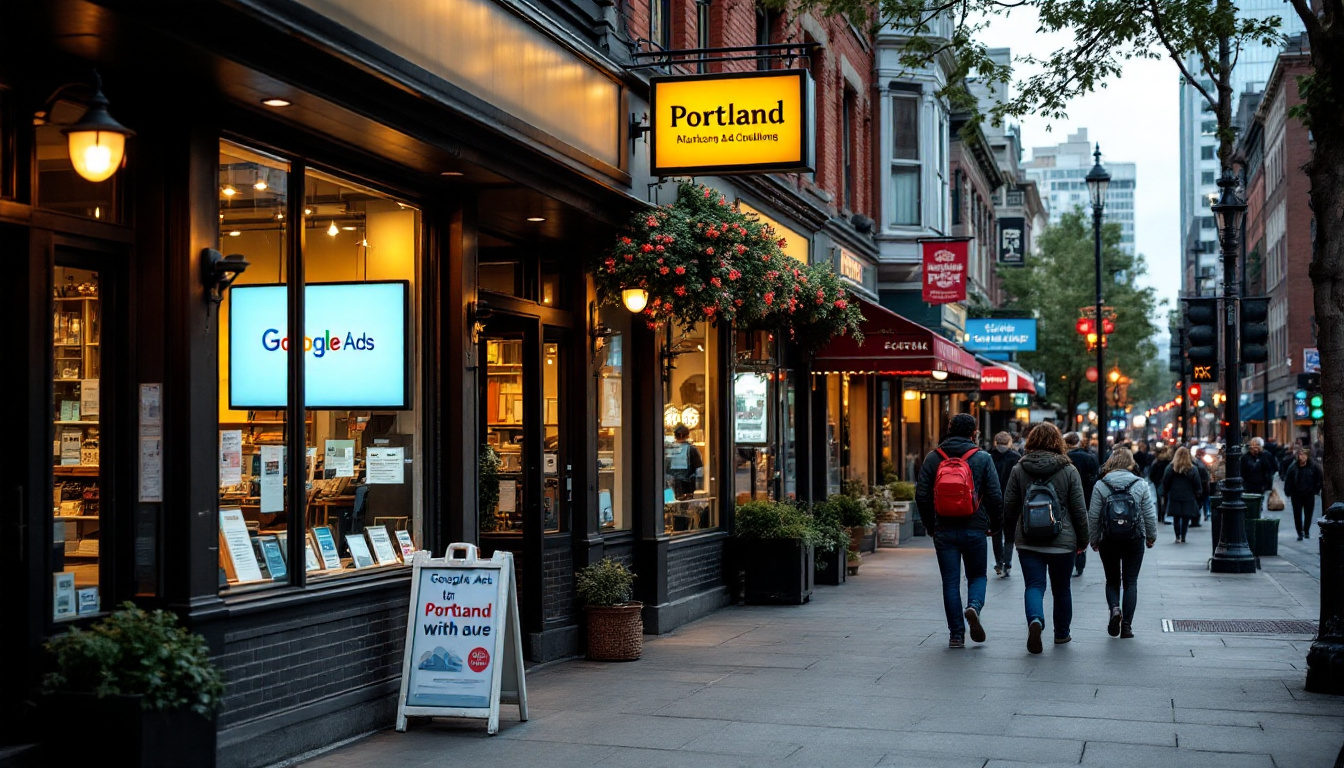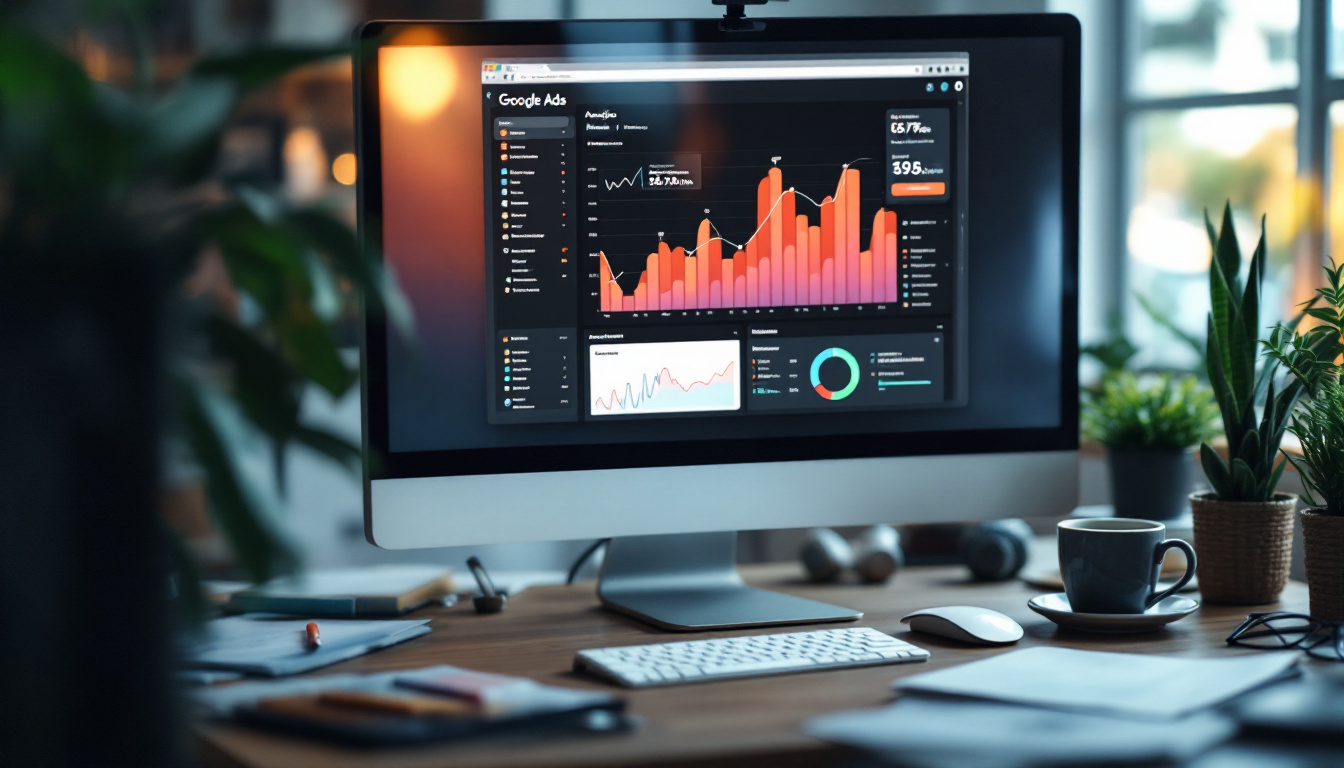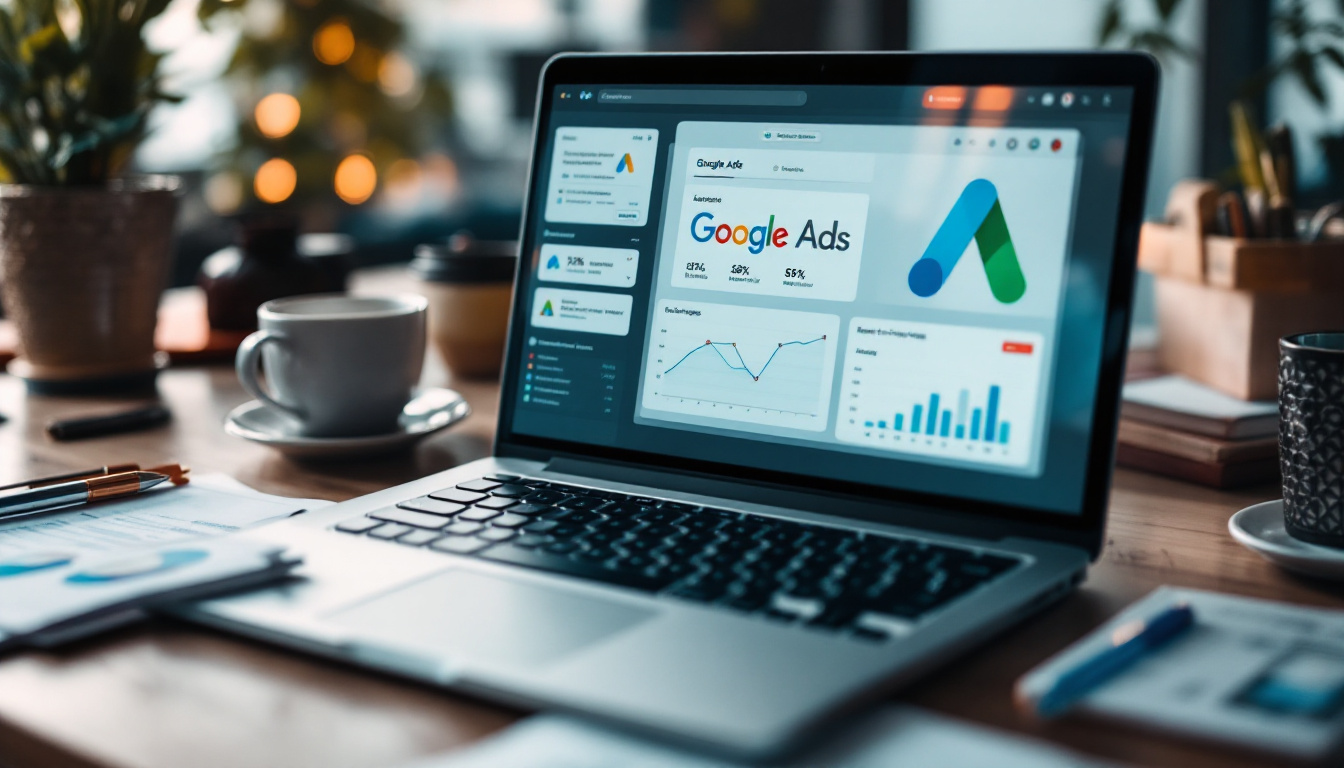What Portland, OR Businesses Should Know About Google Ads Updates

In an evolving digital landscape, businesses in Portland, OR need to stay informed about changes in online advertising, particularly through Google Ads. With its expansive reach and robust features, Google Ads provides a powerful platform for connecting with customers. Knowing the latest updates can enhance strategies and improve overall ROI.
Understanding the latest Google Ads updates
Google frequently rolls out updates to its advertising platform, impacting how ads are created, served, and measured. These updates may include changes in bidding strategies, new ad formats, or enhancements to existing tools. Staying abreast of these shifts is crucial for businesses to leverage Google Ads effectively.

For instance, the introduction of Performance Max campaigns has allowed advertisers to reach potential customers across all Google inventory from a single campaign. This means that businesses can now unify their advertising efforts across Search, YouTube, Display, and more, simplifying the management process. This integration not only saves time but also enables advertisers to optimize their campaigns more efficiently, as they can analyze performance metrics across various platforms in one cohesive view.
Moreover, updates around audience targeting and insights are continually evolving. Google focuses on giving businesses more control over the audiences they target while simultaneously enhancing privacy features. This balance is significant for Portland businesses who want personalized marketing without infringing on user privacy. With the rise of data protection regulations, these updates ensure that marketers can still reach their desired audience while respecting consumer rights, fostering a trust-based relationship between brands and users.
What to look for in the updates
Businesses should be vigilant about several aspects whenever Google releases new updates:
- Changes in ad formats and specifications
- Updates to bidding options and cost models
- New insights and analytics tools
- Audience targeting enhancements
By monitoring these elements, Portland businesses can better adjust their advertising strategies to align with Google's latest best practices. For example, adapting to new bidding strategies can significantly impact the return on investment (ROI) of ad campaigns, allowing businesses to maximize their budget while achieving their marketing goals. Additionally, understanding the nuances of new ad formats can provide a competitive edge, as creative and engaging ads are more likely to capture user attention in a crowded digital landscape.
Sources for Google Ads updates
There are numerous resources to stay updated, including:
- The official Google Ads blog
- Digital marketing forums and communities
- Industry publications focused on PPC advertising
Regularly visiting these sources equips local businesses with up-to-date information and best practices, allowing for more responsive and adaptive ad management. Furthermore, engaging with community discussions can provide insights from fellow marketers who share their experiences and strategies, creating a collaborative environment for learning and growth. Subscribing to newsletters from industry experts can also keep businesses informed about upcoming trends and changes, ensuring they remain ahead of the curve in the dynamic world of digital advertising.
How updates impact your PPC strategy
The latest Google Ads updates directly affect pay-per-click (PPC) strategies. Changes in bidding options, for instance, could lead to increased costs or improved performance depending on how they are utilized. It's essential for Portland businesses to understand how these alterations can influence their overall advertising strategy.
Failing to adapt to these changes could result in missed opportunities or wasted ad spend. For example, if a business continues using traditional bidding methods when automated bidding options are available, they might not fully harness the potential of these new strategies. Furthermore, understanding the nuances of these updates can empower businesses to stay ahead of competitors who may be slower to adapt, allowing for a more strategic allocation of resources and budget.
Evaluating your current strategy
To effectively adjust to the new landscape, businesses should regularly evaluate their existing PPC strategies. Critical questions to ask include:
- How have recent updates changed my ad performance?
- Are my bidding strategies aligned with the latest options?
- Am I utilizing the new audience targeting features effectively?
By answering these questions, Portland businesses can refine their approaches to achieve better results. Additionally, it may be beneficial to conduct a competitive analysis to see how others in the industry are responding to the same updates. This can provide insights into successful tactics and highlight areas where your strategy may need adjustment to maintain a competitive edge.
Testing and optimization
Every update presents an opportunity for testing and optimization. Portland businesses should be proactive in experimenting with new features. A/B testing different ad formats, audience segments, or bidding strategies can provide valuable insights, helping to fine-tune PPC campaigns for better performance.
Marketing teams should also invest time in analyzing the metrics that indicate the effectiveness of these new strategies. Understanding key performance indicators (KPIs) is vital, as this data can guide future advertising efforts. In addition to traditional metrics like click-through rates and conversion rates, businesses should explore new analytics tools that provide deeper insights into customer behavior and engagement. This holistic approach to data analysis can reveal trends and patterns that might not be immediately obvious, enabling more informed decision-making and strategy adjustments moving forward.
Adapting campaigns to new Google features
Adapting campaigns to align with new Google Ads features is essential for staying competitive in Portland’s market. Whether it involves shifting to Performance Max campaigns or making use of the latest audience insights, flexibility is paramount. As Google continues to evolve its advertising platform, businesses must remain vigilant and responsive to these changes to harness the full potential of their marketing efforts.
One practical approach for businesses is to integrate automation where appropriate. Google’s automated tools not only save time but can also enhance accuracy in targeting and bidding, allowing businesses to focus on content and strategy rather than granular ad management. For instance, utilizing Smart Bidding strategies can help optimize bids in real-time based on user behavior and contextual signals, maximizing the effectiveness of ad spend while minimizing manual oversight.
The importance of continuous learning
Digital marketing is fast-paced, and ongoing education is critical. Portland businesses should encourage their teams to continuously learn about Google Ads through webinars, online courses, and certification programs. This commitment to education ensures that marketing efforts remain fresh and relevant. Moreover, staying updated on industry trends and best practices can empower teams to experiment with new features and tools, ultimately leading to more innovative campaigns that resonate with their target audience.
Furthermore, attending local digital marketing workshops or networking events can provide opportunities to share experiences with other advertisers, fostering a community that embraces adaptation and innovation. These gatherings not only allow for knowledge exchange but also inspire collaboration, where businesses can brainstorm creative solutions to common challenges faced in the ever-evolving digital landscape.
Utilizing feedback and analytics
Understanding how campaigns perform in response to updates is crucial. Feedback from analytics can inform businesses how to pivot strategies effectively. By analyzing data such as click-through rates (CTR), conversion rates, and return on ad spend (ROAS), Portland businesses can assess whether their adaptations are yielding desired results. Additionally, leveraging Google Analytics alongside Google Ads can provide deeper insights into user behavior, enabling marketers to refine their targeting and messaging strategies based on real-time data.
Incorporating feedback loops between advertising teams and analytics fosters a culture of continuous improvement, ensuring that adaptations are not only reactive but also strategically proactive. Regularly scheduled review sessions can help teams dissect performance metrics and brainstorm actionable insights, creating a dynamic environment where data-driven decisions lead to enhanced campaign effectiveness. This iterative process not only improves current campaigns but also lays the groundwork for future initiatives, ensuring that businesses remain agile and responsive to market demands.
The role of automation in modern PPC campaigns
As we reflect on the changes to Google Ads, it’s clear that automation plays an increasingly significant role in PPC campaigns. Tools like Smart Bidding optimize campaign performance through machine learning algorithms, automatically adjusting bids based on real-time opportunities. This makes it easier for Portland businesses to manage their campaigns and allocate resources effectively.
Automation can help eliminate time-consuming tasks, allowing teams to concentrate on strategy, creativity, and customer engagement. By integrating automated tools, businesses can focus on crafting effective messaging while algorithms handle bidding and placement.
Choosing the right automated solutions
When considering automation, it’s crucial to choose options that align with your specific advertising goals. Some key aspects to examine include:
- The specific objectives of your campaigns (such as lead generation or sales)
- How flexible and customizable the automation tools are
- The level of control you wish to maintain over your campaigns
Finding the right balance between automation and manual controls is vital to ensure success in PPC advertising.
Monitoring and refining automated campaigns
Once automated campaigns are launched, continuous monitoring is essential. Businesses must keep an eye on performance metrics to ensure that the automation is functioning effectively and delivering the desired outcomes. Fine-tuning parameters based on real-time results can improve effectiveness and overall return on investment.
Ultimately, staying engaged with the automated processes ensures that campaigns remain on target and are fine-tuned to adapt to future updates from Google.
Key takeaways from recent Google Ads changes
As we summarize the recent changes to Google Ads, it’s clear that adaptation is the name of the game. For Portland businesses, understanding these updates should be seen as an ongoing opportunity to refine advertising strategies that leverage the latest tools and features.

The key takeaways include:
- Stay informed on Google Ads updates through credible sources.
- Adjust your PPC strategies to align with new features and bidding options.
- Embrace automation to enhance campaign efficiency.
- Continuously evaluate performance and be prepared to pivot when necessary.
By focusing on these takeaways, Portland businesses can navigate changes confidently and ensure their marketing efforts are both effective and innovative in the competitive online landscape.

As a Google Ads expert, I bring proven expertise in optimizing advertising campaigns to maximize ROI.
I specialize in sharing advanced strategies and targeted tips to refine Google Ads campaign management.
Committed to staying ahead of the latest trends and algorithms, I ensure that my clients receive cutting-edge solutions.
My passion for digital marketing and my ability to interpret data for strategic insights enable me to offer high-level consulting that aims to exceed expectations.




























